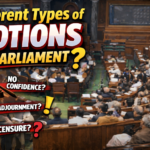PepsiCo-potato case: Basics Explained

The Delhi High Court, recently, held that there was no merit in the appeal filed by PepsiCo over the patent rights for its unique potato variety.
PepsiCo’s The multinational corporation has accused the farmers, claims infringes its patent ,of cultivating the FC5 potato variety, grown exclusively for its popular Lay’s potato chips; patent infringement under the Protection of Plant Varieties and Farmers’ Rights(PPV&FR) Act, 2001.
The FC5 variety, registered in the US as FL2027, has a lower moisture content (80 per cent, compared with 85 per cent for other varieties), which is ideal to make snacks such as potato chips and for processing; also leads to a decrease in the rate of conversion of starch to sugars, vital in the production of quintessential chips and fries. PepsiCo obtained rights to grow the FC5 variety of potato under the Protection of Plant Varieties and Farmers’ Rights (PPV & FR) Act, 2001 in 2016.
LEARNING FROM HOME/ WITHOUT CLASSES/ BASICS
PPV & FR act provides for the establishment of an effective system for protection of plant varieties, the rights of farmers and plant breeders and to encourage the development of new varieties of plants
It recognize and protect the rights of farmers in respect of their contributions made at any time in conserving, improving and making available plant genetic resources for the development of new plant varieties.
It aims to accelerate agricultural development in the country, protect plant breeders’ rights; stimulate investment for research and development both in public & private sector for the development new of plant varieties.
The act facilitate the growth of seed industry in the country which will ensure the availability of high quality seeds and planting material to the farmers.
The legislation is not only in conformity with International Union for the Protection of New Varieties of Plants (UPOV), 1978,and the Trade-Related Aspects of Intellectual Property Rights Agreement (TRIPs) but also have sufficient provisions to protect the interests of public sector breeding institutions and the farmers.
The PPVFR Act, 2001 provides rights under Section 39(l)(iv) to the farmer who has bred or developed a new variety. Accordingly, she/he shall be entitled for registration and other protection as a breeder of the variety under this Act. The rights of farmers are fully protected. As per the provision of Section 39(l)(iv), a farmer shall be deemed to be entitled to save, use, sow, re-sow, exchange, share or sell his farm produce including seed of a variety protected under this Act in the same manner as he was entitled before the coming into force of this Act. Provided that the farmer shall not be entitled to sell branded seeds of a variety protected under this Act. To implement the provisions of the Act the Department of Agriculture and Cooperation, Ministry of Agriculture established the Protection of Plant Varieties and Farmers’ Rights Authority on 11th November, 2005.
The Chairperson is the Chief Executive of the Authority. Besides the Chairperson, the Authority has 15 members, as notified by the Government of India (GOI).
The validity period – during which nobody else could commercially produce, sell, market, distribute, import or export it without the breeder’s authorisation – was six years from the date of registration and extendable up to 15 years.
The Farmers Rights are also enshrined under PPVFR Act, 2001 and applicable all over India.
New variety: A new variety had to conform to the criterion of novelty. That required the propagated or harvested material from it not to have been sold in India earlier than one year before the date of filing the application for registration.
Extant variety: It is a variety that could satisfy only the criteria of distinctiveness, uniformity and stability, but not novelty.
Intellectual Property Rights are the rights given to persons over the creations of their minds. They usually give the creator an exclusive right over the use of his/her creation for a certain period of time. Ex. Books, films come under copyright; inventions can be patented; brand names and logos can be registered as trademark.
WTO’s TRIPS Agreement, which came into effect on Jan 1, 1995, is a multilateral agreement on intellectual property. It establishes minimum level s of protection that each government has to give to the intellectual property of fellow WTO members. Consequently India passed the Patents Amendment Act, 2005.





0 Comments